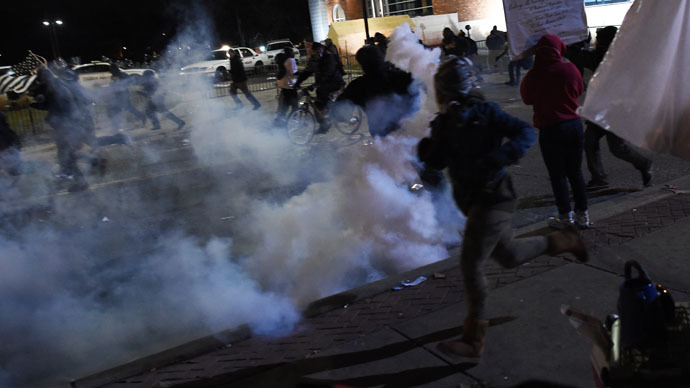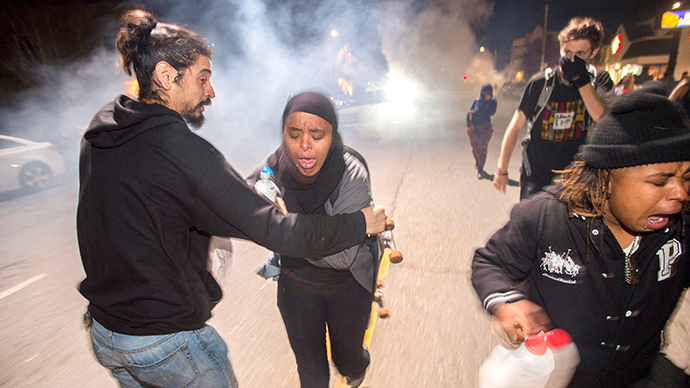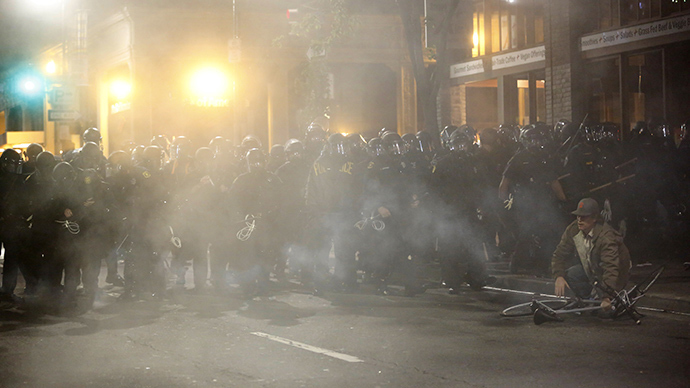Judge restricts use of tear gas against Ferguson protesters

A federal judge ordered St. Louis-area police to grant warnings before firing tear gas in order to give crowds “reasonable” time to disperse, following a lawsuit over wanton use of tear gas by militarized police during race-related protests in Ferguson.
US District Judge Carol Jackson ruled after hearing arguments in a lawsuit against local and state law enforcement officials that stemmed from police action in Ferguson, a suburb in St. Louis County, and in areas of St. Louis city on November 24, following a grand jury decision not to indict Darren Wilson, a former Ferguson police officer who killed unarmed black teenager Michael Brown in August.
The fatal shooting triggered months of protests and civil unrest, both locally and nationwide, over the case and, in general, racial profiling, police brutality, and race- and class-based inequality within the American legal system.
The plaintiffs said that crowds, including children and elderly people, were fired on by police with tear gas cannisters without warning, were boxed in by police without means to disperse, and that police failed to wear proper identification.

Police used tear gas “in a manner designed to inflict pain and anguish rather than accomplishing any legitimate law enforcement objective,” the plaintiffs alleged.
The six plaintiffs, according to Reuters, included a coffee shop owner; two area activists; a legal observer; a professor from St. Louis University; and a college student. They called for a temporary restraining order against St. Louis City Police Chief Sam Dotson, St. Louis County Police Chief Jon Belmar, and Missouri Highway Patrol Captain Ron Johnson.
In court, police said smoke and tear gas were used used to protect the safety of officers and to prevent property destruction, particularly in an area of south St. Louis city.
St. Louis County Police Captain Kurk Frisz, commander of the county’s tactical unit responsible for tear gassing crowds, said the chemical was used to aid seven officers he said were surrounded by demonstrators. Tear gas was necessary because there “was a lot of violence, shots fired and assaults on police officers,” he said, according to KTVI.

While calling for police to give adequate warning before firing tear gas, Judge Jackson did not side completely with conditions sought by the plaintiffs, including one seeking an order that tear gas be used strictly as a "last resort to prevent significant threats to public safety."
Nevertheless, the plaintiffs’ legal team hailed the decision.
"This was a victory today," said Brendan Roediger, a lawyer for the plaintiffs, according to Reuters. "At its core it accomplishes what we were asking for."
Another representative of the plaintiffs, Denise Lieberman of the Advancement Project, said, according to KTVI, that the ruling means police must curtail indiscriminate mass punishment via use of tear gas.
Police did not respond to Reuters’ requests for comment.












